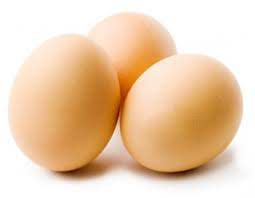The consumption of plant-based eggs will outpace chicken eggs in the next decade, with Asia emerging as a big market for the food substitute, according Eat Just. As people become increasingly health conscious, a lot of egg eaters will shift to plant-based eggs, said Josh Tetrick, co-founder and chief executive of Eat Just. The faux eggs are tastier and cheaper, and could eventually become an important source of protein that is loved equally by vegetarians and chicken-egg eaters, he added.
Founded in 2011, Eat Just makes a mung bean-based egg substitute under the brand Just Egg that comes in bottles and looks like beaten fresh eggs. The unicorn, which counts Singapore’s Temasek Holdings and Li’s private investment unit Horizons Ventures among its investors, also makes a mayonnaise substitute, and sells its products in US stores including Walmart, Kroger and Whole Foods. Now the company is eyeing expansion in Asia where egg consumption is on the rise. "Asia will be one of the most important places for us to grow in the next decade, as more people in Asia are eating chicken eggs than any other place on the planet," Tetrick said in an interview.
Asia-Pacific was the largest region in the global egg market, accounting for 64 per cent of the market last year, according to Dublin-based Research and Markets. The global egg market, however, is expected to decline from US$200.8 billion in 2019 to US$198.4 billion this year mainly because of the economic slowdown across countries owing to the Covid-19 outbreak and the measures to contain it, the report said. Eat Just believes more consumers will shift to plant-based substitutes after the pandemic is brought under control amid growing awareness about its health benefits due to the lack of cholesterol and its reduced environmental impact. "It is our hope that in the next decade, more people will be eating plant-based eggs than eggs from chickens," said Tetrick. Prices of eggless substitutes will continue to drop as technology improves and will ultimately become cheaper than regular eggs, he added.
Led by companies including Beyond Meat and Impossible Foods, US retail sales of plant-based food rose 11 per cent last year to US$5 billion, with the faux egg market nearly tripling from a very low base of US$10 million, according to data released by market research firm SPINS in March.
Last month, Eat Just announced a partnership with a consortium led by private equity firm Proterra Investment Partners Asia to build and operate a US$120 million plant-protein facility in Singapore, their first in Asia. He did not say when the plant will be operational.
While the company has a well-established distribution network and partners in Asia such as SPC Samlip of South Korea and Betagro of Thailand, Tetrick said they were looking to form a partnership China. Currently the company sells its products in China on popular e-commerce platforms like Alibaba-owned Tmall and JD.com.
Eat Just and Proterra are in discussions to expand their alliance to focus on another promising avenue for protein innovation – the commercial production of cell-based chicken, said Tetrick. Cell-based meat, also called as cultured meat, is genuine animal meat that can replicate the sensory and nutritional profile of conventionally produced meat. It is produced from animal cells using a combination of biotechnology, tissue engineering, molecular biology and synthetic processes. His company’s ultimate goal is to seek an initial public offering, Tetrick said without providing a timetable. Last month the Just Egg maker was looking to raise at least US$200 million in a transaction that would have valued the company at US$2 billion or more, Bloomberg reported, citing sources. It is not clear if the deal has been concluded.
Source: scmp.com.


